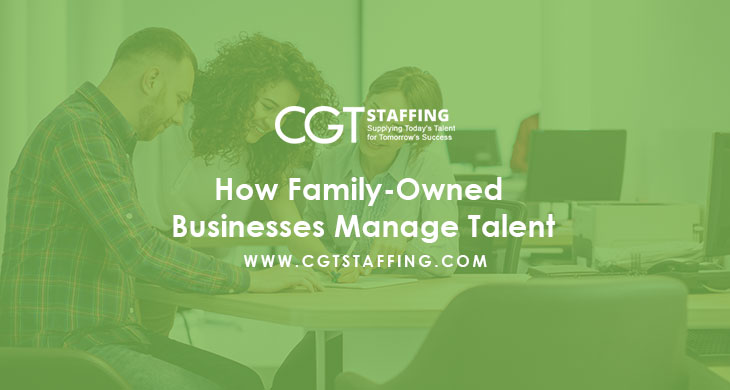Workforce management can be challenging in any business setting. With family-owned businesses, there can be several other layers of complexity. Family-run concerns aren’t always a mom-and-pop corner store. They can employ anywhere between two to thousands of employees. They can exist in various industries, from a shopping retail chain to a staffing agency, and many of them possess a unique set of complexities that can impact their workforce management services.
Most family-owned concerns keep the top-tier roles for family members. They may have conventional hiring models such as centralized hiring; on the other hand, many family members could be unconventionally involved in the hiring process. For many new employees that are not family members, this can often be perceived as a difficult obstacle in the path to their career goals. This can in some cases undermine their dedication to the firm, which in turn, can impair the success of the firm’s talent acquisition strategy. Here are just a few challenges that workforce managers encounter in a family-owned business:
Table of Contents
Managing Legacy Employees
Depending on how old a family-run business is, there is usually an aging Old Guard of employees. These would have typically been involved in the early success of the firm. Many could even have been part of the founder’s core team and have been employed at the firm ever since. However, it is almost inevitable that many of these legacy employees would not have acquired the skills they need to keep pace with the digital world. And while they may still have ceremonial importance, they may not have the skills relevant to their role anymore.
As a result, they could be acting as a bottleneck in terms of performance and output. Of course, thanks to their legacy in the firm, they can’t simply be judged with standard performance appraisal methods. Workforce managers may need to exercise careful diplomacy and tact to work around legacy employees.
Mediating Friction Between New Hires and Older Workers
Older workers may have risen through the ranks in certain family-owned businesses. For example, a factory worker could have made it up the ladder to supervisor, foreman, and even floor manager. They may have invested years in each role before getting to their current position. However, that may also imply they are older and could be out of touch with more modern methods of doing things. For many businesses, the only remedy is to bring in someone with modern business experience to oversee things.
While the additional technical knowledge and innovation can certainly help, many older employees could feel disgruntled at having a younger new hire as their boss. There can often be friction when this happens, adding to the already complex workforce management challenges facing managers.
Balancing Intervening Leadership and Due Process
Family-owned businesses usually have defined business processes and workflows once they grow to a certain size. However, these firms also defer to family members occupying key roles. That means should a senior family member choose to intervene in a process, many workers would find it very difficult to say no. Of course, going off-script carries inherent risks. Intervening with the due process can often cause disruption, inconsistency, and even resentment, but refusing a senior employee who is related to the owners can also be quite risky. This usually results in a very delicate balancing act for workforce managers.
Dealing with Talent Related to the Family
Now and then, family-owned businesses can add new related members. As families grow, they acquire new generations of members. Some of them can often wind up working for the business, and while some may be very talented individuals, others may feel more entitled to their position than their performance can indicate. Dealing with this sense of entitlement and poor performance can prove quite challenging to line managers and teams alike.
Managing Loyalties During Transitions
Employee loyalty is always a great asset to any business, but in many family-run concerns, employees can also form strong loyalties with specific family members. Of course, the inevitable occurs sooner or later, and the family member they were loyal to moves on to make room for new blood. Workforce managers need to work hard to reinforce trust during these transitions. Splintering loyalties could see a lot of disruption and increased employee turnover along with the outgoing family member.
